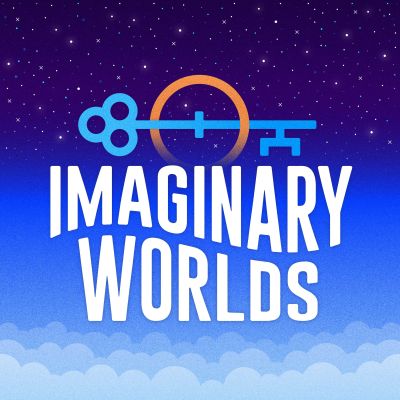Imaginary Worlds sounds like what would happen if NPR went to ComicCon and decided that’s all they ever wanted to cover. Host Eric Molinsky spent over a decade working as a public radio reporter and producer, and he uses those skills to create thoughtful, sound-rich episodes about science fiction, fantasy, and other genres of speculative fiction. Every other week, he talks with comic book artists, game designers, novelists, screenwriters, filmmakers, and fans about how they craft their worlds, why we suspend our disbelief, and what happens if the spell is broken. Imaginary worlds may be set on distant planets or parallel dimensions, but they are crafted here on Earth, and they’re always about us and our lived experiences.
https://www.imaginaryworldspodcast.org/
Do You Speak Conlang?
Sci-fi fantasy worlds often use constructed languages (or conlangs for short) as a worldbuilding tool that can make us believe the characters come from an ancient or alien culture. But art can take on a life of its own once it's released into the world -- and so do languages. Marc Okrand, inventor of the Klingon language, and David J. Peterson, inventor of the Dothraki language and The 100's Trigedasleng, talk about the surprises they encountered. I also talk with Lawrence M. Schoen of the Klingon Language Institute and Robyn Stewart, the language consultant for Star Trek: Discovery, about why the Klingon culture spilled over into the real world. And Jen Usellis -- a.k.a. Klingon Pop Warrior -- will give you a serious case of earworms, and we're not talking about the mind-controlling earworms from Star Trek II. To hear Matt Fiddler's episode from Very Bad Words on cursing in conlangs:http://www.verybadwords.com/shows/constructed-curses-in-sci-fi-fantasy Learn more about your ad choices. Visit megaphone.fm/adchoices
Learn more about your ad choices. Visit megaphone.fm/adchoices
